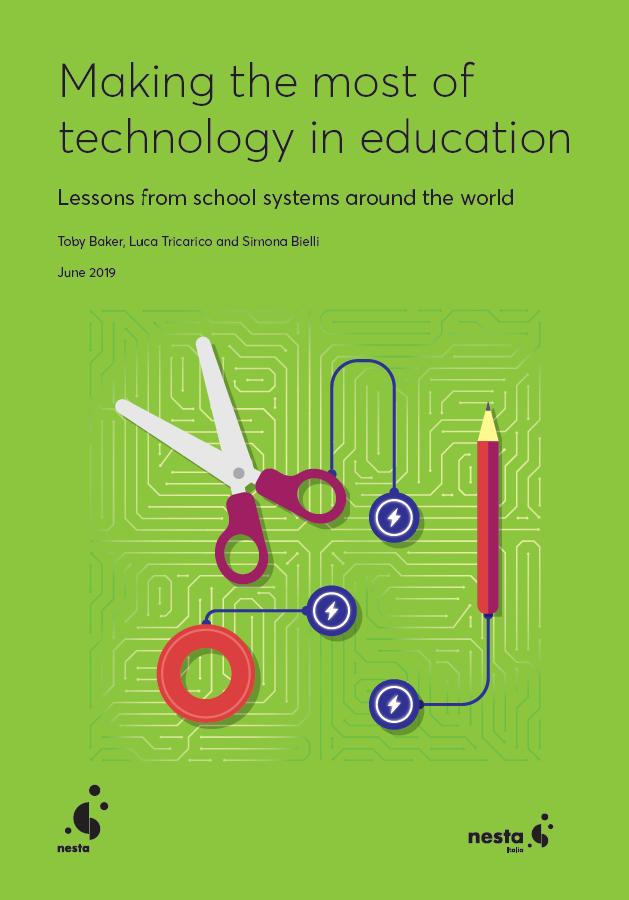
Scalability at School
Last Thursday, in Turin, the Fondazione per la Scuola of Compagnia di San Paolo and Nesta Italia presented the study on “How to Obtain the Most from Technology at School? Lessons from Global Educational Systems,” by Toby Baker, Luca Tricarico and Simona Bielli [see press note]. This is the Italian version of the Report on Making the Most of Technology in Education (Nesta, 2019).

The study analyses nine cases of excellence in international educational systems: three in Italy (Turin, Modena and Busto Arsizio-Varese), three in Europe (Estonia, Wales and England) and three in the rest of the world (Brazil, Kenya and New Zealand).
Italian cases of excellence include “Riconnessioni” in Piedmont, a Compagnia di San Paolo project developed by the Fondazione per la Scuola introduced ultra-wideband connectivity to over one hundred schools, introducing digital processes, new courses, data exploitation and the development of new services and teaching modes.
The study also provides a few suggestions to optimise technology as part of academic systems based on the comparison between difficulties and opportunities in various experiences. The objective was not only to tally avant-garde experiments, but also to propose sustainable models addressing results, tools and innovative didactic practices.
Tuttoscuola underlined how “the key words most used by the study” include “scalability of experiences, their ability to be diffused, replicated and implemented as widely as possible.”
Alfonso Molina, Scientific Director of the Fondazione Mondo Digitale, and case studies from the Phyrtual Innovation Gym were consulted during the research activity.

